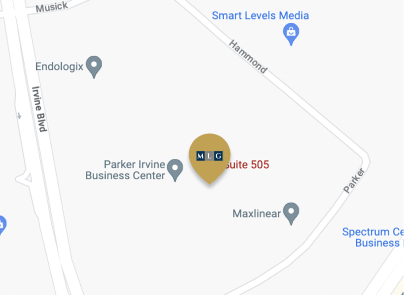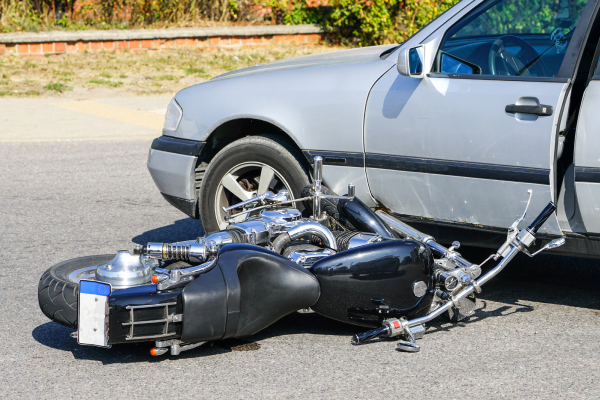
Motorcycle accidents happen for many reasons. Every year, thousands of motorcycle riders are hurt or killed in crashes. These crashes can happen anywhere—on busy roads, quiet streets, or highways. Understanding the common causes of motorcycle accidents can help riders stay safer.
MLG Personal & Accident Lawyers know how devastating these accidents can be. We work hard to help injured motorcycle operators get the compensation they deserve. Our team is here to support you during this difficult time.
Car Doors
Car doors are a hidden danger for motorcycle riders. A driver or passenger can suddenly open a door without looking. This creates an immediate hazard. Riders often have no time to stop, leading to serious injuries.
Parked cars are a major source of these accidents. If a door swings open, it can block the rider’s path. This type of crash is common in urban areas with heavy traffic. Car drivers must check their mirrors and blind spots before opening doors.
Motorcyclists should ride safely and stay alert near parked vehicles. Giving parked cars extra space can help prevent these accidents. Motorcycle operators also need to slow down in areas where doors might open suddenly.
By staying aware of this danger, both drivers and riders can avoid accidents and reduce injuries.
Reckless Driving, Speeding, and Alcohol Use
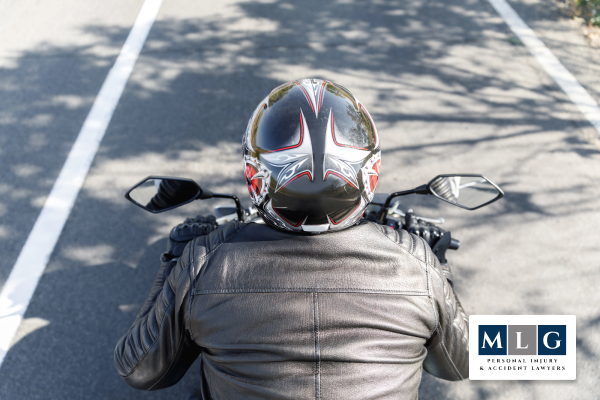
Reckless driving, excessive speed, and alcohol use are major causes of motorcycle accidents. These factors lead to dangerous situations for riders and other vehicles on the road.
Car drivers who drive recklessly or at excessive speeds can make it harder for motorcycle riders to react. Similarly, alcohol use slows reaction times and impairs judgment. Riders may not see a car changing lanes or turning until it's too late. Fatal accidents often involve one or more of these causes.
Motorcyclists tend to be at greater risk when other drivers act irresponsibly. Following the speed limit and avoiding alcohol before riding can save lives. Drivers of passenger vehicles must also watch for motorcycles and avoid risky behaviors.
By promoting motorcycle safety and responsible driving, we can prevent serious injuries and reduce the number of fatal crashes on our roads.
Head-On Collisions
Head-on collisions are some of the deadliest motorcycle crashes. These happen when a car or truck veers into the motorcycle's lane. The result is often fatal motorcycle accidents or life-changing injuries.
One reason head-on collisions occur is distracted or impaired driving. Other causes include speeding or unsafe passing on two-lane roads. Motorcycle operators have less protection compared to those in passenger vehicles. This makes head-on collisions particularly dangerous.
Motorcycle riders should always be cautious on narrow or high-speed roads. Avoiding head-on collisions requires attention to traffic patterns and staying visible to other drivers. Drivers of passenger vehicles must also respect motorcycles and avoid risky maneuvers.
When both riders and drivers prioritize safety, we can reduce the number of these tragic accidents.
Bad Weather
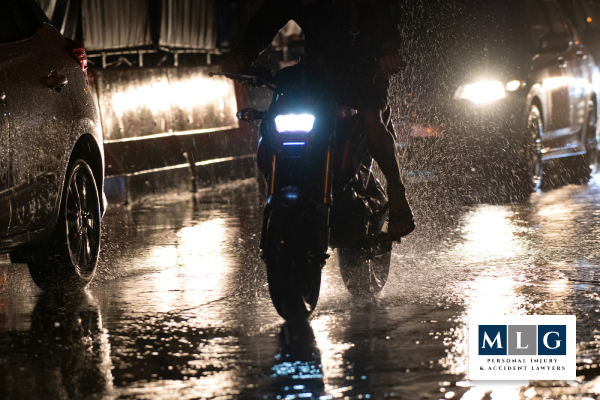
Bad weather conditions make riding a motorcycle much riskier. Rain, snow, or ice can cause slippery roads, making it harder to control a bike. These conditions often lead to motorcycle crashes.
Motorcycle operators should take extra precautions during bad weather. Reduced visibility and slick surfaces increase the risk of accidents. Riders must check their tires, brakes, and lights to ensure the motorcycle is ready for adverse conditions.
Car drivers also need to be cautious. Wet or icy roads can make it harder to see motorcycles. Drivers must allow more space and avoid sudden moves that could endanger riders.
Whenever possible, riders should avoid riding in severe weather. Planning trips carefully and staying informed about road conditions can prevent serious injuries caused by dangerous weather.
Lane Switching
Lane switching is a common cause of motorcycle accidents. When car drivers fail to check their blind spots, they can hit a motorcycle while changing lanes. This puts the rider in a dangerous situation.
Blind spots are especially hazardous for motorcycle operators. Other vehicles may not see a smaller motorcycle in their path. Vehicle drivers must always check mirrors and signal before moving into another lane.
Motorcycle riders should ride safely by avoiding a vehicle's blind spot whenever possible. Staying visible to other cars reduces the chance of accidents. Both drivers and riders can help prevent crashes by being aware of their surroundings.
Clear communication and careful lane changes can save lives and prevent serious injuries on the road.
Lane Splitting
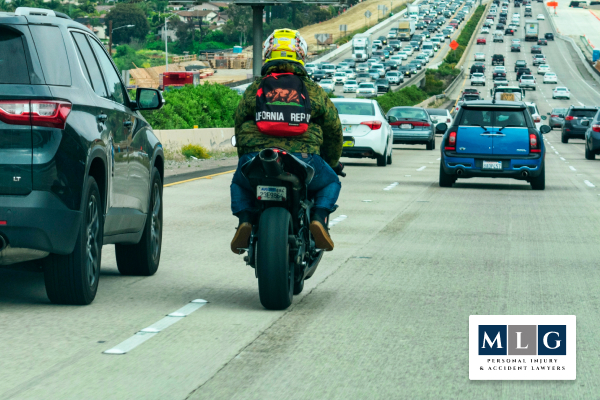
Lane splitting happens when motorcycle riders move between lanes of slow or stopped traffic. While this can save time, it often leads to accidents. Many car drivers do not expect motorcycles to pass in this way.
Motorcycle crashes during lane splitting are common in heavy traffic. Blind spots, sudden lane changes, and narrow spaces increase the risk. Riders may not have enough room to react if a car moves unexpectedly.
To ride safely, motorcyclists should only lane split where it is legal. Staying within a safe speed limit and avoiding blind spots can reduce accidents. Car drivers must also remain alert and check for motorcycles before changing lanes.
Both riders and drivers can work together to make lane splitting safer. Awareness and caution can help prevent serious injuries and protect everyone on the road.
Sudden Stops
Sudden stops are a leading cause of rear-end collisions involving motorcycles. If a vehicle brakes suddenly, a rider may not have enough time to stop. This can result in severe injuries.
Passenger vehicles often underestimate the stopping distance needed for motorcycles. Other drivers might slam on their brakes without checking for motorcycles behind them. This creates a dangerous situation for motorcycle operators.
Riders can reduce risk by maintaining a safe following distance. Being prepared for sudden stops helps avoid crashes. Vehicle drivers should also slow down gradually and signal when possible to give motorcycles enough time to react.
Preventing accidents caused by sudden stops requires attention from everyone on the road.
Left-Turn Accidents
Left-turn accidents are one of the most common motorcycle accidents. These happen when a car turns left in front of an oncoming motorcycle. The car driver often misjudges the rider's speed or distance.
Vehicle turning errors are a major factor in these crashes. Drivers may fail to notice motorcycles due to their smaller size. Blind spots and distractions can make the problem worse.
Motorcycle operators should watch for signs of a turning vehicle and slow down if necessary. Defensive driving can help avoid these collisions. Car drivers must also double-check for motorcycles before making left turns.
When riders and drivers stay alert, they can prevent left-turn accidents and reduce injuries on the road.
Dangerous Road Conditions
Dangerous road conditions can lead to serious motorcycle accidents. Potholes, debris, uneven surfaces, and poor signage are all risks. Motorcycles are more affected by these hazards than passenger vehicles.
Motorcycle operators need to be extra cautious on poorly maintained roads. Slippery surfaces, gravel, or unexpected obstacles can cause crashes. Riders should avoid riding too fast and scan the road ahead for potential dangers.
The Federal Highway Administration works to improve road safety, but issues can still arise. Car drivers must also drive carefully in areas with bad road conditions to avoid causing accidents.
By being prepared and staying vigilant, riders and drivers can avoid accidents caused by unsafe roads.
Steps to Do If You’ve Been Injured in a Motorcycle Accident
If you’ve been injured in a motorcycle accident, take these steps to protect yourself and your claim:
- Call for Help
Dial 911 to report the accident. Request medical assistance and police presence. - Get Medical Attention
Even if your injuries seem minor, see a doctor. Some serious injuries, like traumatic brain injuries, may not be obvious right away. - Document the Scene
Take photos of the crash site, your motorcycle, other vehicles, and any visible injuries. These can serve as evidence. - Exchange Information
Collect names, contact details, and insurance information from the other drivers involved. Avoid admitting fault. - Talk to Witnesses
If there are witnesses, get their names and contact information. Their accounts can support your case. - Contact an Attorney
Reach out to experienced motorcycle accident lawyers like MLG Personal & Accident Lawyers. We can help you understand your rights and pursue compensation.
Acting quickly can strengthen your claim and protect your interests.
Motorcycle Accident Injuries You Can Include in a Claim
Motorcycle accidents can cause a wide range of injuries. These injuries can be severe and may have long-term effects. Below are some of the most common types of injuries you can include in a claim.
Traumatic Brain Injuries (TBIs)
Traumatic brain injuries are among the most serious injuries motorcycle riders can suffer. These occur when the brain is damaged by a strong impact, such as hitting the ground during a crash. TBIs can lead to memory loss, mood changes, and permanent disability.
Wearing a helmet reduces the risk of these injuries but does not eliminate them. Even at lower speeds, TBIs can occur when a rider is struck by other vehicles or thrown off the bike. Medical treatment is often lengthy and expensive, adding to the challenges faced by injured riders.
Riders injured in this way can include the costs of medical care, rehabilitation, and lost wages in their claim. Consulting an attorney ensures these expenses are accounted for.
Spinal Cord Injuries
Spinal cord injuries are life-changing. Damage to the spine can cause paralysis, chronic pain, or mobility issues. Motorcycle crashes often result in these injuries due to the lack of protection for riders.
When spinal injuries occur, victims may face ongoing medical care and the need for assistive devices. This can lead to high costs and emotional stress. Compensation claims can cover these expenses, along with pain and suffering.
Riders should seek immediate medical care if they suspect spinal cord damage. Early treatment can improve outcomes.
Broken Bone Injuries
Broken bones are a common result of motorcycle accidents. Riders may break their arms, legs, ribs, or pelvis in a crash. These injuries can happen when the rider is thrown from the motorcycle or struck by other vehicles.
Recovery from broken bones often requires surgery, physical therapy, and time off work. This can create financial and personal challenges for injured riders. Including these costs in your claim is essential.
Experienced attorneys can help injured riders seek compensation for medical bills, lost wages, and other related costs.
Road Rash Injuries
Road rash injuries occur when a rider’s skin scrapes against the pavement. These injuries can range from mild to severe. In extreme cases, they may cause nerve damage or infections.
Protective gear can reduce the severity of road rash. However, even with proper equipment, riders may still suffer from these injuries in a crash. Road rash can leave permanent scars and require extensive medical care.
Compensation claims for road rash injuries often include medical treatment, pain, and disfigurement. An attorney can help you build a strong case for these damages.
Types of Damages in a Motorcycle Collision

If you’ve been in a motorcycle accident, you may be entitled to different types of compensation. Here are common damages you can pursue:
- Medical Expenses: Covers hospital stays, surgeries, medications, and rehabilitation.
- Lost Wages: Compensation for time missed at work due to injuries.
- Pain and Suffering: For physical pain and emotional distress caused by the accident.
- Property Damage: Covers repairs or replacement of your motorcycle and gear.
- Future Costs: Compensation for ongoing medical care or loss of earning potential.
These damages ensure you get the support you need after a crash.
FAQs
What should I do immediately after a motorcycle accident?
Call 911, seek medical attention, and document the scene. Contact a lawyer as soon as possible.
Who is liable for my motorcycle accident?
Liability depends on the cause. It could involve other drivers, poor road conditions, or defective motorcycle parts.
Can I still file a claim if I wasn’t wearing a helmet?
Yes, but not wearing a helmet could affect the amount of compensation you receive.
How long do I have to file a claim?
The timeline varies by state. Consult with a lawyer to avoid missing deadlines.
Do I need an attorney for my case?
Yes. An experienced attorney can guide you and help maximize your compensation.
Contact Our Experienced Motorcycle Accident Attorney for a Free Consultation

If you’ve been injured in a motorcycle accident, you don’t have to face the aftermath alone. MLG Personal & Accident Lawyers are here to help. Our experienced team understands the complexities of motorcycle accidents and car accidents, ensuring you get the legal support you need.
In some cases, accidents happen due to inexperienced riders or mistakes made by other drivers. Regardless of the cause, we work to secure fair compensation for our clients. We'll fight for your rights if you’re dealing with injuries, property damage, or emotional distress.
We offer free consultations to discuss your case and explain your options. Don’t let the challenges overwhelm you. Contact us today to schedule a free case consultation.
Schedule Your Free Consultation
"*" indicates required fields
